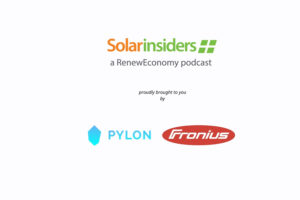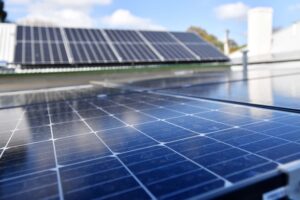The Energy and Water spending bill for 2014 that’s winding its way through the US House of Representatives was being treated as a political football before Wednesday. But this morning, as The Hill reports, the House added insult to injury by passing a GOP amendment to the bill that blocks enforcement of new light bulb standards.
Those standards were first enacted in 2007 under the Bush Administration by the Energy Independence and Security Act — though Congress has delayed implementation of the standards sense. Many commentators characterized the standards as a “ban” on incandescent light bulbs, but technically they weren’t. They were merely new efficiency requirements that apply to the manufacture of all light bulbs, and incandescent light bulbs are inefficient energy users, making the new standards a nearly impossible technological hurdle for them to clear.
Of course, that’s how efficiency standards are supposed to work. Take the inefficiency of any given incandescent, multiply it by all then incandescents used across the nation, and that translates into a lot of wasted energy. That, in turn, means unnecessary energy costs for consumers and unnecessary carbon emissions, adding to the growing global threat posed by climate change. And as Times’ Michael Grunwald pointed out, even without the standards in place, alternative LED bulbs are becoming more advanced and dropping rapidly in cost, while a new super-efficient incandescent bulb that uses nanotechnology was just released as well. The standards would merely serve to speed this process even further.
It’s how markets are supposed to work: present them a challenge, and they adapt. None of that moved Rep. Michael Burgess (R-TX), however.
Last year he proposed language prohibiting any Energy Department funds from being used to implement the standards. He re-proposed that language this year, and today the House approved an amendment affixing it to the energy and water bill. “If the new energy-efficient light bulbs save money, and if they’re better for the environment, we should trust our constituents to make the choice on their own move toward these bulbs,” Burgess said while justifying his proposal. “Let the market decide.”
But the way markets work is through price signals — that’s how we sort out the value we place on the environment, versus the value we place on convenience, versus the value we place on energy, etc. And an appropriate signal for carbon emissions is precisely what we don’t have. Carbon emissions threaten future damage to lives and the economy through the droughts, heat waves, and extreme weather brought on by climate change. Right now we don’t pay for that damage when we use the types of energy that release carbon dioxide. Because of that failure, the U.S. actually subsidizers fossil fuel use far more than any other country in the world.
So for Burgess to suggest blocking the standards leaves it to “the market to decide” is nonsensical. Without price signals, the market can’t decide.
A cap-and-trade system or a carbon tax would address this problem directly. But in their absence, efficiency standards are a decent substitute. (And even in their presence, efficiency standards are a useful compliment.) If Burgess doesn’t like the standards, and would prefer a more “market-based” solution to the problem of carbon emissions, he should put his money where his mouth is and propose one.
HT: TPM
This article was originally published on Climate Progress. Reproduced with permission







